Air shipping has revolutionized the logistics industry by providing a fast and reliable method for transporting goods across the globe.China, as the world’s largest exporter, plays a pivotal role in international trade. With its vast manufacturing capabilities, cutting-edge technology, and extensive production facilities, China supplies a multitude of goods to every corner of the globe. Air shipping from China has thus become an essential component of global supply chains, facilitating the rapid movement of high-value and time-sensitive products. This blog will navigate the dynamics of air shipping from China, providing insights into its advantages, processes, costs, and best practices.
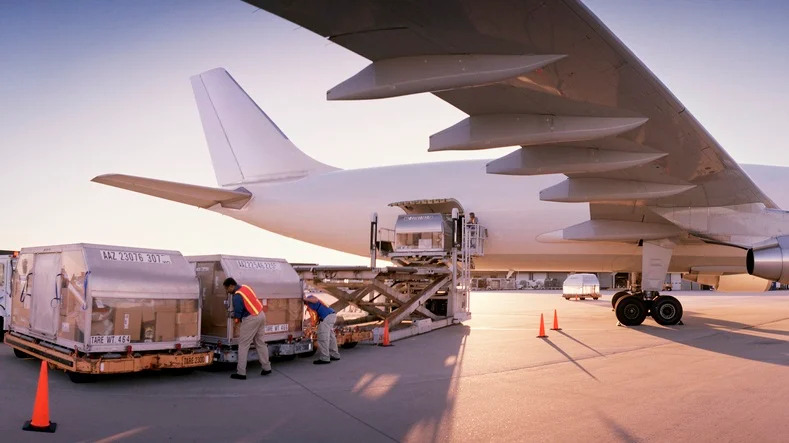
Table of Contents
Understanding the Basics of Air Shipping
What Is Air Shipping?
Air shipping, also known as air freight, refers to the transportation of goods via aircraft. This method is renowned for its speed and reliability, making it the preferred choice for shipping time-sensitive and high-value items. Unlike other modes of transportation, such as sea or rail, air shipping offers unmatched transit times, often delivering goods within days rather than weeks.
Advantages and Disadvantages of Air Shipping
Advantages:
- Speed:
- Air shipping is the fastest mode of transportation, making it ideal for urgent deliveries. This is especially crucial for industries like electronics, pharmaceuticals, and fashion, where timely delivery can significantly impact business operations.
- Reliability:
- Airlines have strict schedules, and delays are relatively rare compared to other shipping methods. This ensures that goods are delivered on time and in good condition.
- Global Reach:
- Air shipping provides extensive network coverage, connecting even the most remote locations. This is particularly beneficial for businesses that require global reach.
- Security:
- Airports have stringent security measures in place, reducing the risk of theft and damage. This ensures that high-value goods are transported safely.
Disadvantages:
- Cost:
- Air shipping is generally more expensive than sea or land transportation. The cost is influenced by factors such as weight, volume, and distance.
- Capacity Limitations:
- Aircraft have limited cargo capacity compared to ships and trucks. This makes air shipping less suitable for bulk or oversized items.
- Environmental Impact:
- Air transportation has a higher carbon footprint compared to other modes of transport. This is an important consideration for businesses with sustainability goals.
Comparison with Other Shipping Methods
| Feature | Air Shipping | Sea Shipping | Rail Shipping |
|---|---|---|---|
| Speed | Fast (1-7 days) | Slow (20-40 days) | Moderate (10-15 days) |
| Cost | High | Low | Moderate |
| Reliability | High | Moderate | High |
| Capacity | Low (ideal for smaller, high-value items) | High (ideal for bulk goods) | Moderate |
| Environmental Impact | High (higher carbon emissions) | Low (lower carbon emissions) | Moderate |
Key Elements of Air Shipping from China
Major Airports in China
China is home to several key international airports that serve as major hubs for air freight. These airports are equipped with state-of-the-art facilities and play a crucial role in the export of goods from China. Here are some of the most significant ones:
- Beijing Capital International Airport (PEK)
- Overview: As one of the busiest airports in the world, Beijing Capital International Airport handles a significant volume of cargo. It serves as a gateway for air freight to and from northern China.
- Infrastructure and Connectivity: The airport boasts extensive cargo handling facilities and offers direct flights to numerous international destinations.
- Shanghai Pudong International Airport (PVG)
- Overview: Located in China’s economic hub, Shanghai Pudong International Airport is a critical node for international trade. It is renowned for its efficient cargo operations and high throughput.
- Infrastructure and Connectivity: With advanced cargo terminals and a robust network of airlines, PVG is well-equipped to handle large volumes of air freight.
- Guangzhou Baiyun International Airport (CAN)
- Overview: Serving southern China, Guangzhou Baiyun International Airport is another vital hub for air cargo. It is strategically positioned to facilitate trade with Southeast Asia and beyond.
- Infrastructure and Connectivity: The airport features modern cargo facilities and a high frequency of international flights, ensuring seamless logistics operations.
Common Goods Shipped via Air
Air shipping is typically reserved for high-value and time-sensitive goods that require rapid delivery. Some common categories of products transported by air from China include:
- Electronics: Smartphones, laptops, and other consumer electronics that have high market demand and short product lifecycles.
- Fashion and Apparel: High-end fashion items, seasonal clothing, and accessories that need to be delivered quickly to meet market trends.
- Medical Supplies: Pharmaceuticals, medical devices, and personal protective equipment (PPE) that require prompt and secure transportation.
- Perishable Goods: Fresh food, flowers, and other perishable items that have a limited shelf life and need expedited shipping to maintain freshness.
By understanding the key elements of air shipping from China, businesses can better navigate the logistics landscape and optimize their supply chain operations.
Read More:
- Shipping From China to the United States
- Shipping From China To UNITED KINGDOM
- Shipping From China To Netherlands
- Shipping From China To ALGERIA
- Shipping from China to UAE
- Shipping from China to Saudi Arabia 2024
Shipping Process and Documentation
Step-by-Step Air Shipping Process
- Booking and Scheduling
- Initiating the Shipment: Contact a freight forwarder or airline to book space for your cargo. Provide details such as the nature of the goods, weight, dimensions, and destination.
- Scheduling: Select a flight that meets your delivery timeline and budget. Consider factors such as transit time, route, and airline reputation.
- Packaging and Labeling Requirements
- Packaging Standards: Ensure your goods are securely packaged to withstand the rigors of air transportation. Use sturdy materials and appropriate cushioning to protect against damage.
- Labeling: Clearly label each package with the necessary information, including contents, weight, handling instructions, and destination. Proper labeling is crucial for customs clearance and efficient handling.
- Customs Clearance Procedures
- Export Customs Clearance: Submit all required documentation to Chinese customs authorities for export clearance. This includes the commercial invoice, packing list, and any necessary permits or licenses.
- Import Customs Clearance: Upon arrival at the destination, the goods must clear import customs. Ensure all documentation is in order to avoid delays and additional costs.
Essential Documentation
Proper documentation is vital for the smooth execution of air shipments. Here are some of the key documents required:
- Air Waybill (AWB)
- Function: Acts as a contract of carriage between the shipper and the airline. It provides details about the shipment and serves as a receipt for the goods.
- Contents: Includes information such as shipper and consignee details, flight and route information, description of goods, weight, and dimensions.
- Commercial Invoice
- Function: A crucial document for customs clearance, the commercial invoice outlines the transaction between the exporter and importer.
- Contents: Details the value of the goods, terms of sale, and payment conditions. It should also include the shipper’s and consignee’s information.
- Packing List
- Function: Provides detailed information about the contents of each package in the shipment.
- Contents: Includes descriptions, quantities, weights, and dimensions of the items. It ensures accurate inventory management and assists in customs inspections.
- Export License (if applicable)
- Function: Certain goods may require an export license from Chinese authorities before they can be shipped.
- Contents: Specifies the type and quantity of goods being exported, along with the approval from relevant government agencies.
By following a structured shipping process and ensuring all necessary documentation is in place, businesses can minimize delays and avoid potential complications. This comprehensive approach to air shipping will help ensure that goods are delivered efficiently and in compliance with regulatory requirements.
Cost Considerations and Pricing
Factors Affecting Air Shipping Costs
Understanding the factors that influence air shipping costs is crucial for budgeting and optimizing logistics expenses. Here are some of the key determinants:
- Weight and Volume
- Distance and Route
- Fuel Surcharges and Other Fees
- Seasonal Demand
Cost Comparison: Air vs. Other Shipping Methods
| Feature | Air Shipping | Sea Shipping | Rail Shipping |
|---|---|---|---|
| Speed | Fast (1-7 days) | Slow (20-40 days) | Moderate (10-15 days) |
| Cost | High | Low | Moderate |
| Reliability | High | Moderate | High |
| Capacity | Low (ideal for smaller, high-value items) | High (ideal for bulk goods) | Moderate |
| Environmental Impact | High (higher carbon emissions) | Low (lower carbon emissions) | Moderate |
Pricing Table for Different Routes
To provide a clearer picture of air shipping costs, here is an pricing table for shipping goods from China to various global destinations:
| Destination | Chargeable Weight (kg) | Cost per kg (USD) | Total Cost (USD) |
|---|---|---|---|
| USA (LAX) | 100 | $5.00 | $500 |
| Germany (FRA) | 100 | $4.50 | $450 |
| Australia (SYD) | 100 | $5.50 | $550 |
| Japan (NRT) | 100 | $4.00 | $400 |
| Brazil (GRU) | 100 | $6.00 | $600 |
Note: Prices will change based on market conditions, fuel surcharges, and other variables.
DDP (Delivered Duty Paid) Air Shipping
What is DDP?
Delivered Duty Paid (DDP) is an Incoterm that places maximum responsibility on the seller. Under DDP, the seller is responsible for delivering the goods to the buyer’s location, covering all costs and risks involved in the process, including transportation, customs clearance, and payment of duties and taxes.
How DDP Works in Air Shipping
Responsibilities of the Seller and Buyer
- Seller’s Responsibilities:
- Arranging and paying for shipping from China to the destination.
- Handling export and import customs clearance.
- Paying all duties, taxes, and fees associated with the import process.
- Ensuring that the goods are delivered to the specified location.
- Buyer’s Responsibilities:
- Accepting delivery of the goods.
- No involvement in customs and shipping processes.
Typical Scenarios for Using DDP
- E-commerce: Online retailers often use DDP to provide a seamless shopping experience for international customers.
- B2B Transactions: Businesses purchasing high-value or critical items may prefer DDP to ensure timely and hassle-free delivery.
DDP vs. Other Incoterms
| Incoterm | Seller’s Responsibility | Buyer’s Responsibility | Suitable For |
|---|---|---|---|
| DDP | All costs and risks until goods are delivered to the buyer’s location | Accept delivery | High-value, time-sensitive items |
| EXW | Making the goods available at the seller’s premises | All transportation, customs, and risk costs from seller’s premises to final destination | Large businesses with logistics expertise |
| FOB | Costs and risks until goods are loaded onto the shipping vessel | Transportation and customs from the point of loading | Bulk goods, less urgent shipments |
| CIF | Transportation to the port of destination, insurance | Import customs clearance, inland transportation | Medium-value goods, moderate urgency |
By understanding DDP and comparing it with other Incoterms, businesses can make informed decisions on the best shipping terms to use for their specific needs.
Choosing the Right Freight Forwarder
Importance of a Reliable Freight Forwarder
Selecting the right freight forwarder is crucial for the seamless execution of air shipments. A reliable freight forwarder acts as an intermediary between you and various logistics providers, ensuring that your goods are transported efficiently and in compliance with all regulations. Here are some reasons why choosing the right freight forwarder is essential:
- Expertise and Experience
- Industry Knowledge: A seasoned freight forwarder has the expertise to navigate the complexities of international shipping, including customs regulations, documentation requirements, and compliance with various international trade laws.
- Problem-Solving Skills: Experienced freight forwarders are adept at handling unforeseen issues such as delays, lost cargo, or regulatory changes, ensuring minimal disruption to your supply chain.
- Cost Efficiency
- Negotiation: Freight forwarders have established relationships with airlines and other logistics providers, allowing them to negotiate better rates on your behalf.
- Consolidation: They can consolidate shipments from multiple clients to lower transportation costs through economies of scale.
- Time Savings
- Streamlined Processes: Freight forwarders handle all aspects of the shipping process, including booking, documentation, and customs clearance, freeing you to focus on your core business activities.
- Real-Time Tracking: Many freight forwarders offer advanced tracking systems, allowing you to monitor the status of your shipments in real time.
- Risk Management
- Insurance: They can arrange for cargo insurance to protect against potential losses or damages during transit.
- Regulatory Compliance: Ensuring that shipments comply with all import/export regulations minimizes the risk of fines, delays, or confiscation of goods.
Why Choose Dantful International Logistics
Dantful International Logistics is a leading provider of international freight forwarding services. Here’s why Dantful stands out as the best choice for your air shipping needs:
- Comprehensive Services
- One-Stop Solution: Dantful offers a full range of logistics services, including air freight, sea freight, customs clearance, warehousing, and distribution.
- Tailored Solutions: Our team works closely with you to provide customized logistics solutions that meet your specific requirements.
- Global Reach
- Extensive Network: With a robust network of partners and agents worldwide, Dantful ensures seamless and efficient logistics operations across multiple regions.
- Local Expertise: Our in-depth knowledge of local markets and regulatory frameworks enables us to navigate the complexities of international trade with ease.
- Commitment to Quality
- Professionalism: Our staff is highly trained and committed to providing exceptional service, ensuring that your shipments are handled with the utmost care.
- Technology-Driven: We leverage state-of-the-art technology for tracking, documentation, and communication, ensuring transparency and efficiency throughout the shipping process.
- Competitive Pricing
- Cost-Effective Solutions: We offer highly competitive rates without compromising on service quality, providing you with the best value for your logistics needs.
Future Trends and Outlook
The air freight industry is poised for transformation driven by technological advancements and sustainability initiatives. Innovations such as blockchain, IoT, and AI offer enhanced visibility, efficiency, and security throughout the supply chain. Additionally, airlines are investing in fuel-efficient aircraft and alternative fuels to reduce carbon emissions and mitigate environmental impact. Navigating the dynamics of air shipping from China requires a deep understanding of the industry’s complexities, market trends, and cost-optimization strategies. By leveraging the expertise of reliable air freight forwarders and adopting best practices, businesses can effectively manage their air cargo operations, ensuring timely delivery and cost-effectiveness
FAQ: Frequently Asked Questions about Air Shipping from China
1. What is the typical transit time for air shipping from China?
- Answer: The typical transit time for air shipping from China usually ranges from 1 to 7 days, depending on the destination and the specific flight route. Direct flights will have shorter transit times compared to routes with multiple stops or layovers.
2. How are air shipping costs calculated?
- Answer: Air shipping costs are primarily calculated based on chargeable weight, which is either the actual weight or the volumetric weight of the shipment, whichever is greater. Additional factors such as distance, fuel surcharges, handling fees, and seasonal demand also influence the total cost.
3. What kind of goods are best suited for air shipping?
- Answer: High-value, time-sensitive, and perishable goods are best suited for air shipping. Common examples include electronics, fashion apparel, medical supplies, and fresh produce.
4. What documentation is required for air shipping from China?
- Answer: Essential documents for air shipping from China include the Air Waybill (AWB), Commercial Invoice, Packing List, and any necessary Export Licenses. Accurate and complete documentation is crucial for smooth customs clearance.
5. What is DDP (Delivered Duty Paid) and how does it benefit the buyer?
- Answer: DDP (Delivered Duty Paid) is an Incoterm where the seller assumes all responsibilities and costs associated with delivering goods to the buyer’s location, including shipping, customs clearance, duties, and taxes. This benefits the buyer by providing a hassle-free experience, as they receive the goods without dealing with the complexities of customs and additional fees.
6. How can I track my air shipment from China?
- Answer: Most freight forwarders offer real-time tracking systems that allow you to monitor the status of your shipment. You can receive updates on key milestones such as departure, arrival, and customs clearance through online portals or automated notifications.
7. Why should I use a freight forwarder for air shipping from China?
- Answer: Freight forwarders bring expertise, efficiency, and cost savings to the shipping process. They handle all logistics, documentation, and customs procedures, allowing you to focus on your core business activities. Additionally, they can negotiate better rates and provide valuable insights into optimizing your supply chain.
References
- International Air Transport Association (IATA) – The IATA provides comprehensive guidelines and resources for air cargo, including best practices for packaging, labeling, and documentation. Visit IATA for more information.
- World Bank’s Logistics Performance Index (LPI) – This index ranks countries based on their logistics performance, including infrastructure, customs, and shipping efficiency. China consistently ranks high due to its advanced logistics capabilities. Access the LPI at World Bank LPI.
- Air Cargo News – A leading source for news and insights on the air cargo industry, covering trends, regulations, and market developments. Visit Air Cargo News for the latest updates.
- DHL Global Forwarding – DHL’s website offers detailed information on air freight services, including cost factors, transit times, and documentation requirements. Explore more at DHL Global Forwarding.
- China’s General Administration of Customs (GACC) – The official website provides regulations, procedures, and updates on customs policies in China. Visit GACC for authoritative information.

Young Chiu is a seasoned logistics expert with over 15 years of experience in international freight forwarding and supply chain management. As CEO of Dantful International Logistics, Young is dedicated to providing valuable insights and practical advice to businesses navigating the complexities of global shipping.











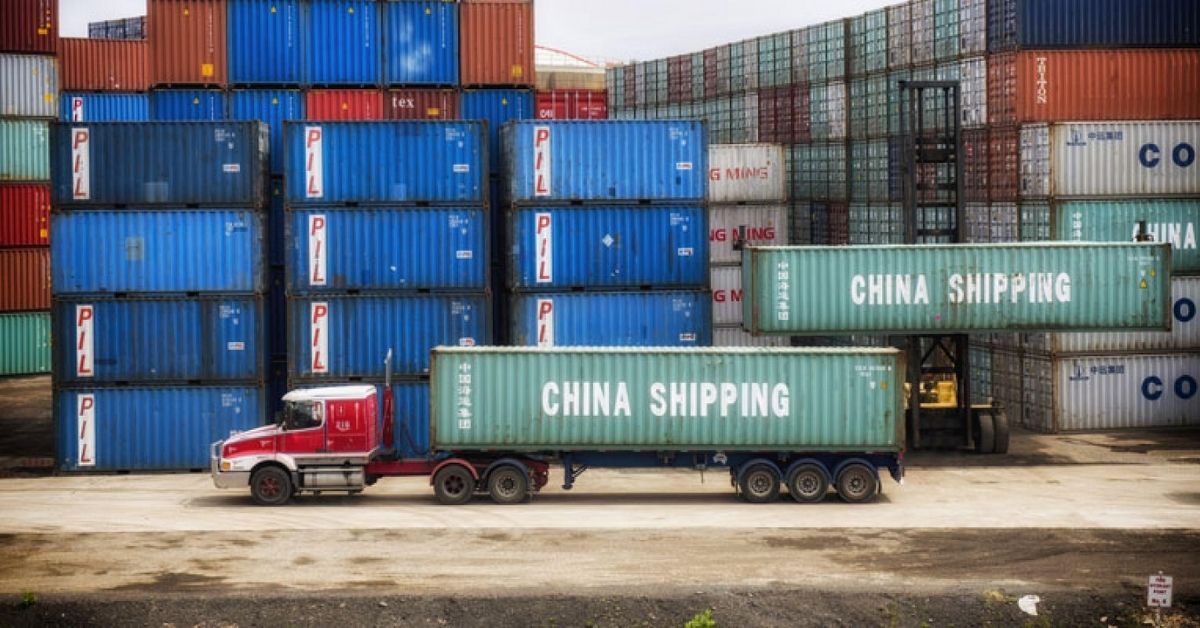
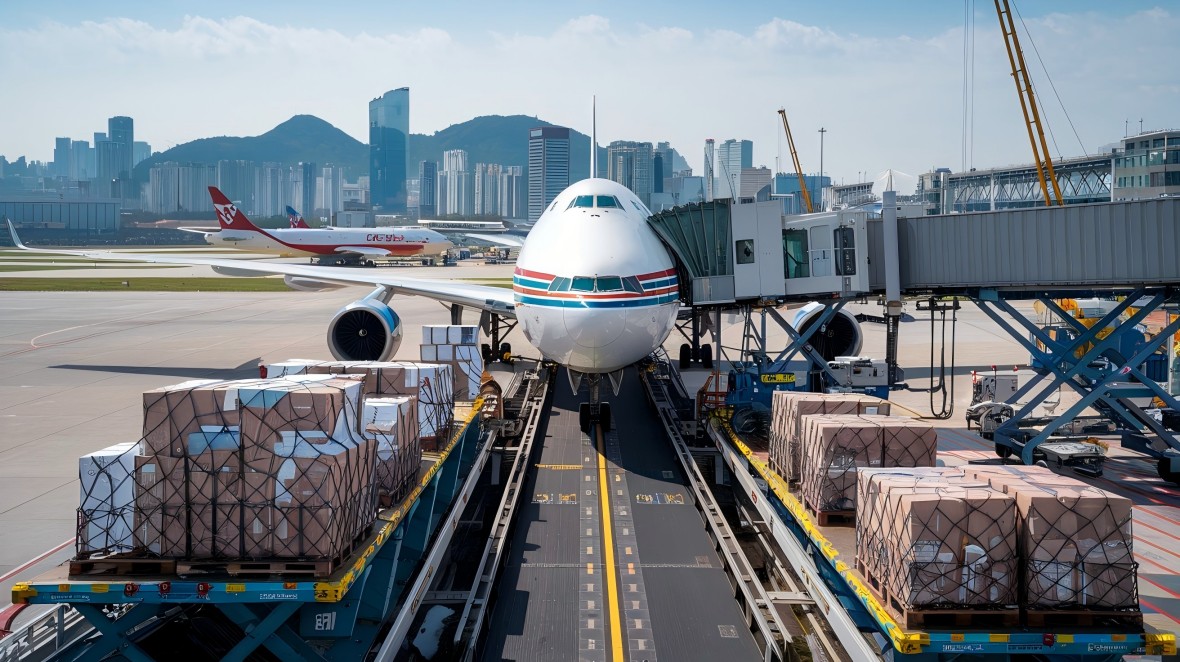
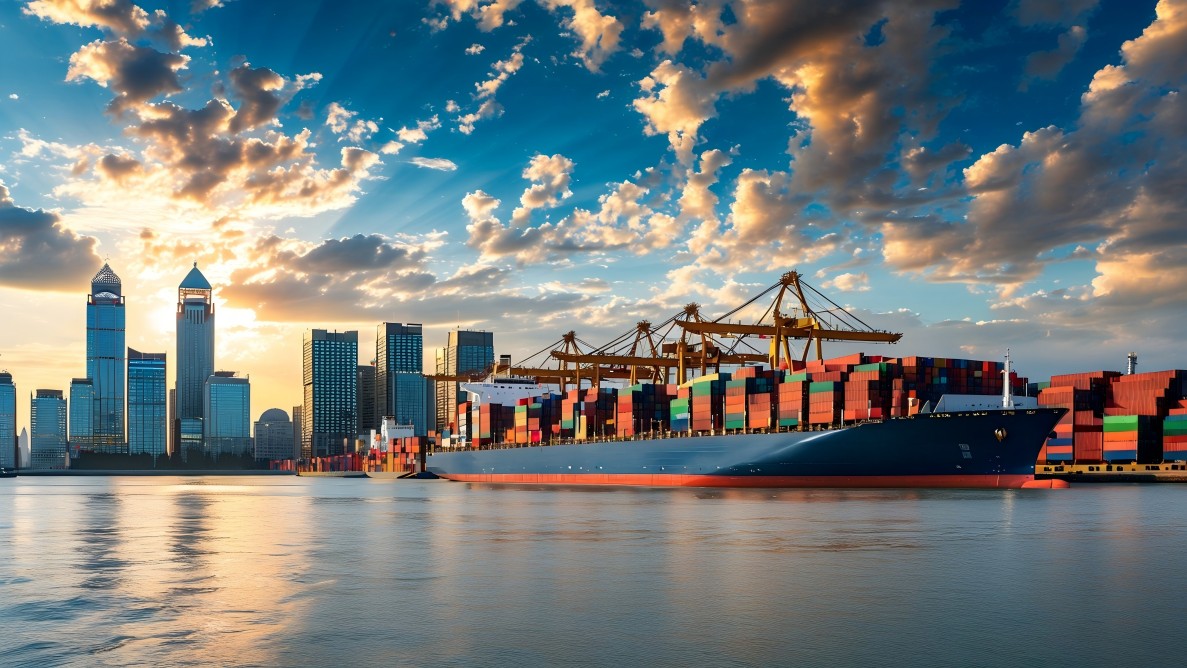
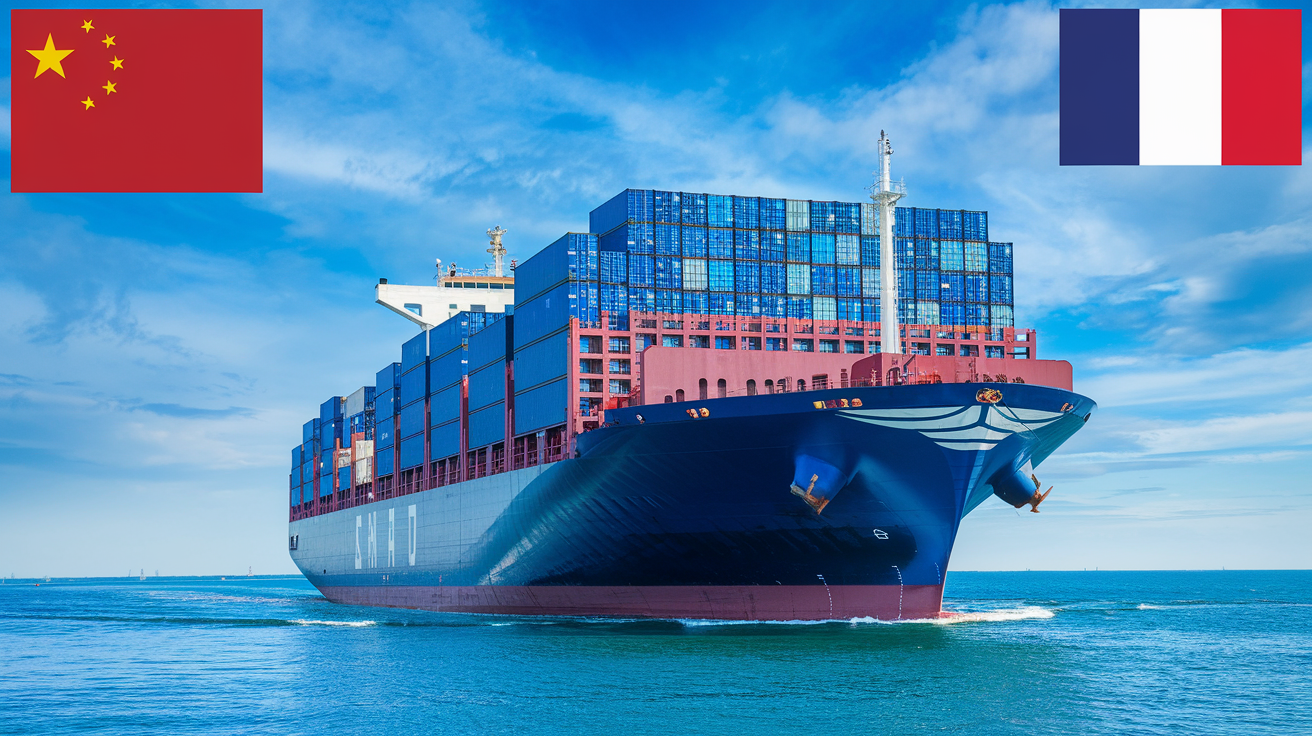






 Afrikaans
Afrikaans Shqip
Shqip አማርኛ
አማርኛ العربية
العربية Հայերեն
Հայերեն Azərbaycan dili
Azərbaycan dili Euskara
Euskara Беларуская мова
Беларуская мова বাংলা
বাংলা Bosanski
Bosanski Български
Български Català
Català Cebuano
Cebuano Chichewa
Chichewa 简体中文
简体中文 繁體中文
繁體中文 Corsu
Corsu Hrvatski
Hrvatski Čeština
Čeština Dansk
Dansk Nederlands
Nederlands English
English Esperanto
Esperanto Eesti
Eesti Filipino
Filipino Suomi
Suomi Français
Français Galego
Galego ქართული
ქართული Deutsch
Deutsch Ελληνικά
Ελληνικά Kreyol ayisyen
Kreyol ayisyen Harshen Hausa
Harshen Hausa Ōlelo Hawaiʻi
Ōlelo Hawaiʻi עִבְרִית
עִבְרִית हिन्दी
हिन्दी Hmong
Hmong Magyar
Magyar Íslenska
Íslenska Igbo
Igbo Bahasa Indonesia
Bahasa Indonesia Gaeilge
Gaeilge Italiano
Italiano 日本語
日本語 Basa Jawa
Basa Jawa ಕನ್ನಡ
ಕನ್ನಡ Қазақ тілі
Қазақ тілі ភាសាខ្មែរ
ភាសាខ្មែរ 한국어
한국어 كوردی
كوردی Кыргызча
Кыргызча ພາສາລາວ
ພາສາລາວ Latin
Latin Latviešu valoda
Latviešu valoda Lietuvių kalba
Lietuvių kalba Lëtzebuergesch
Lëtzebuergesch Македонски јазик
Македонски јазик Malagasy
Malagasy Bahasa Melayu
Bahasa Melayu മലയാളം
മലയാളം Maltese
Maltese Te Reo Māori
Te Reo Māori मराठी
मराठी Монгол
Монгол ဗမာစာ
ဗမာစာ नेपाली
नेपाली Norsk bokmål
Norsk bokmål پښتو
پښتو فارسی
فارسی Polski
Polski Português
Português ਪੰਜਾਬੀ
ਪੰਜਾਬੀ Română
Română Русский
Русский Samoan
Samoan Gàidhlig
Gàidhlig Српски језик
Српски језик Sesotho
Sesotho Shona
Shona سنڌي
سنڌي සිංහල
සිංහල Slovenčina
Slovenčina Slovenščina
Slovenščina Afsoomaali
Afsoomaali Español
Español Basa Sunda
Basa Sunda Kiswahili
Kiswahili Svenska
Svenska Тоҷикӣ
Тоҷикӣ தமிழ்
தமிழ் తెలుగు
తెలుగు ไทย
ไทย Türkçe
Türkçe Українська
Українська اردو
اردو O‘zbekcha
O‘zbekcha Tiếng Việt
Tiếng Việt Cymraeg
Cymraeg יידיש
יידיש Yorùbá
Yorùbá Zulu
Zulu